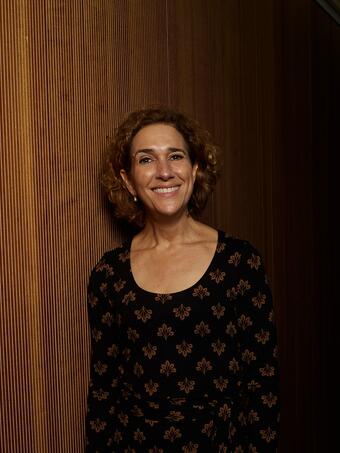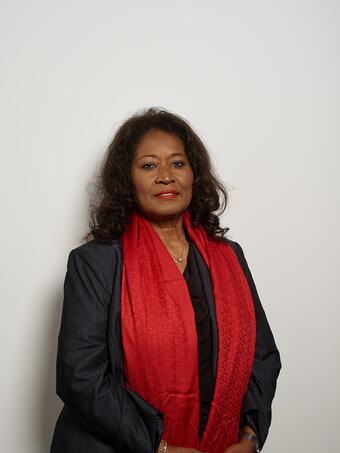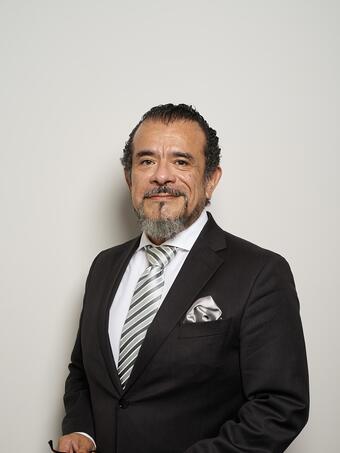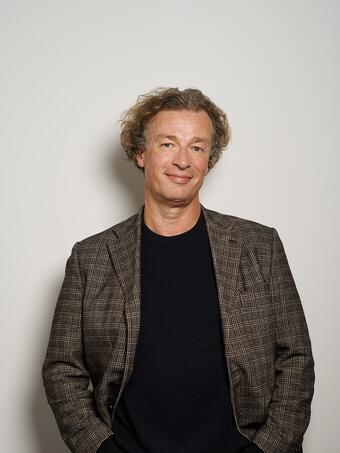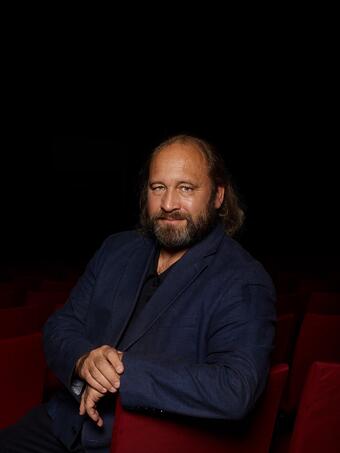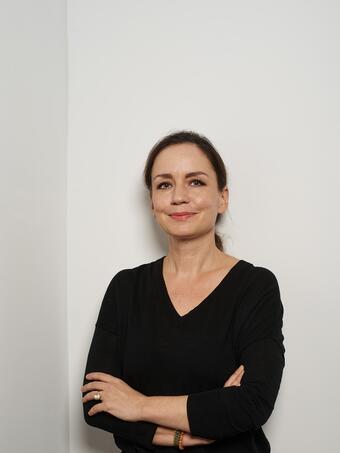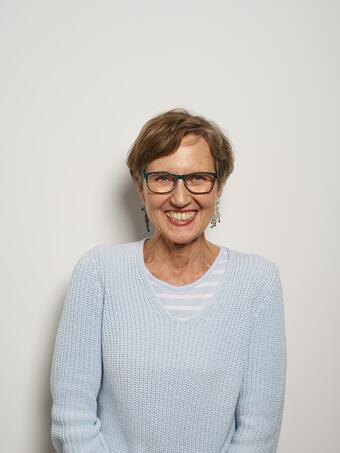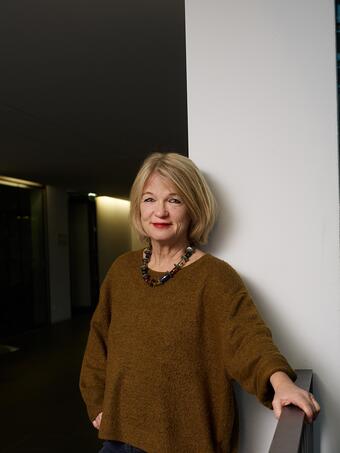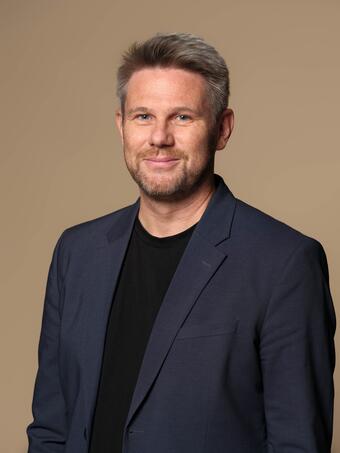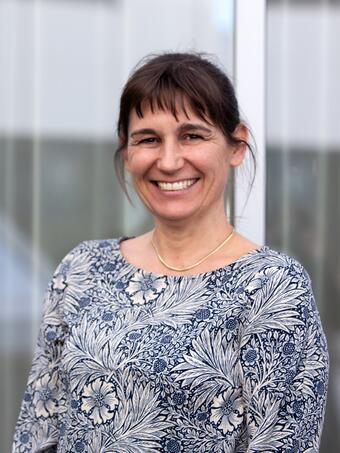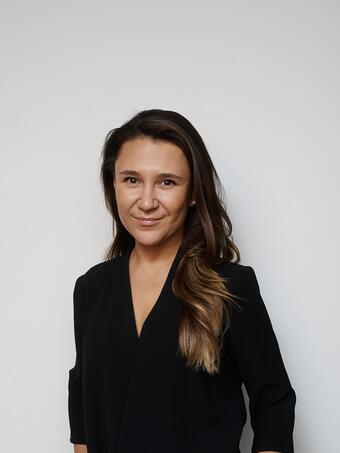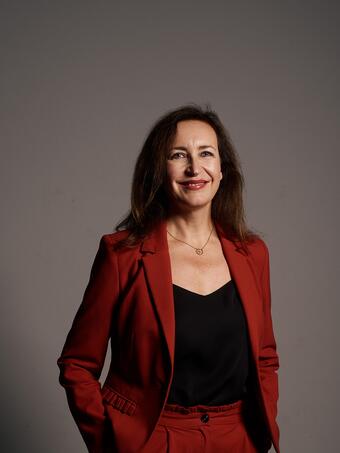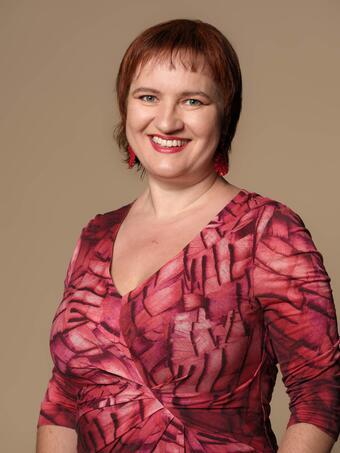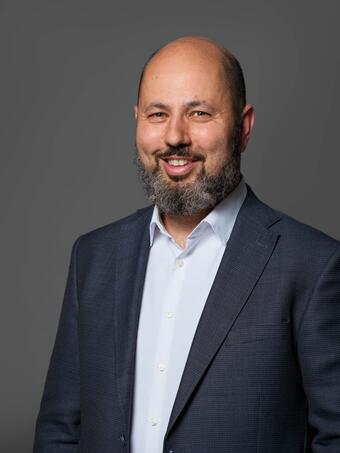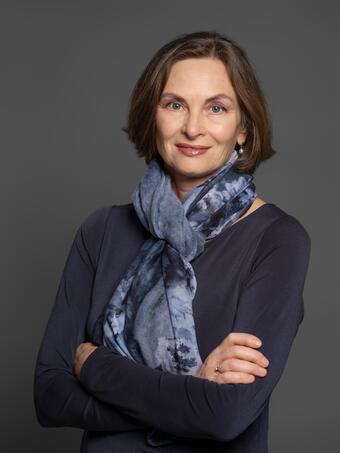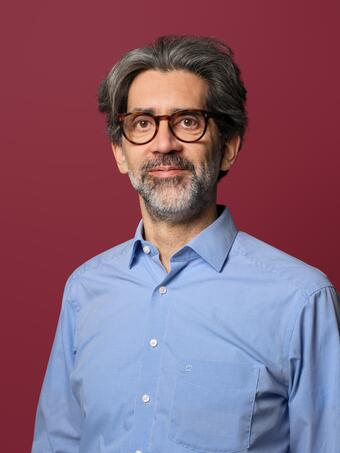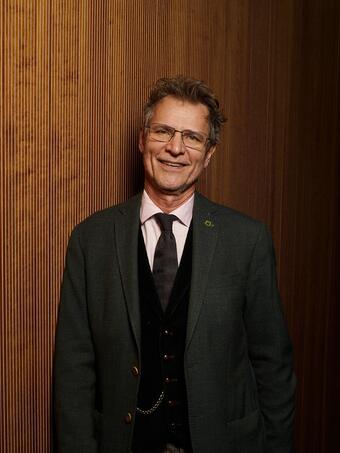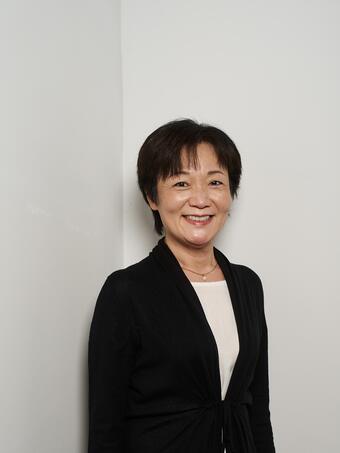Vocal Studies
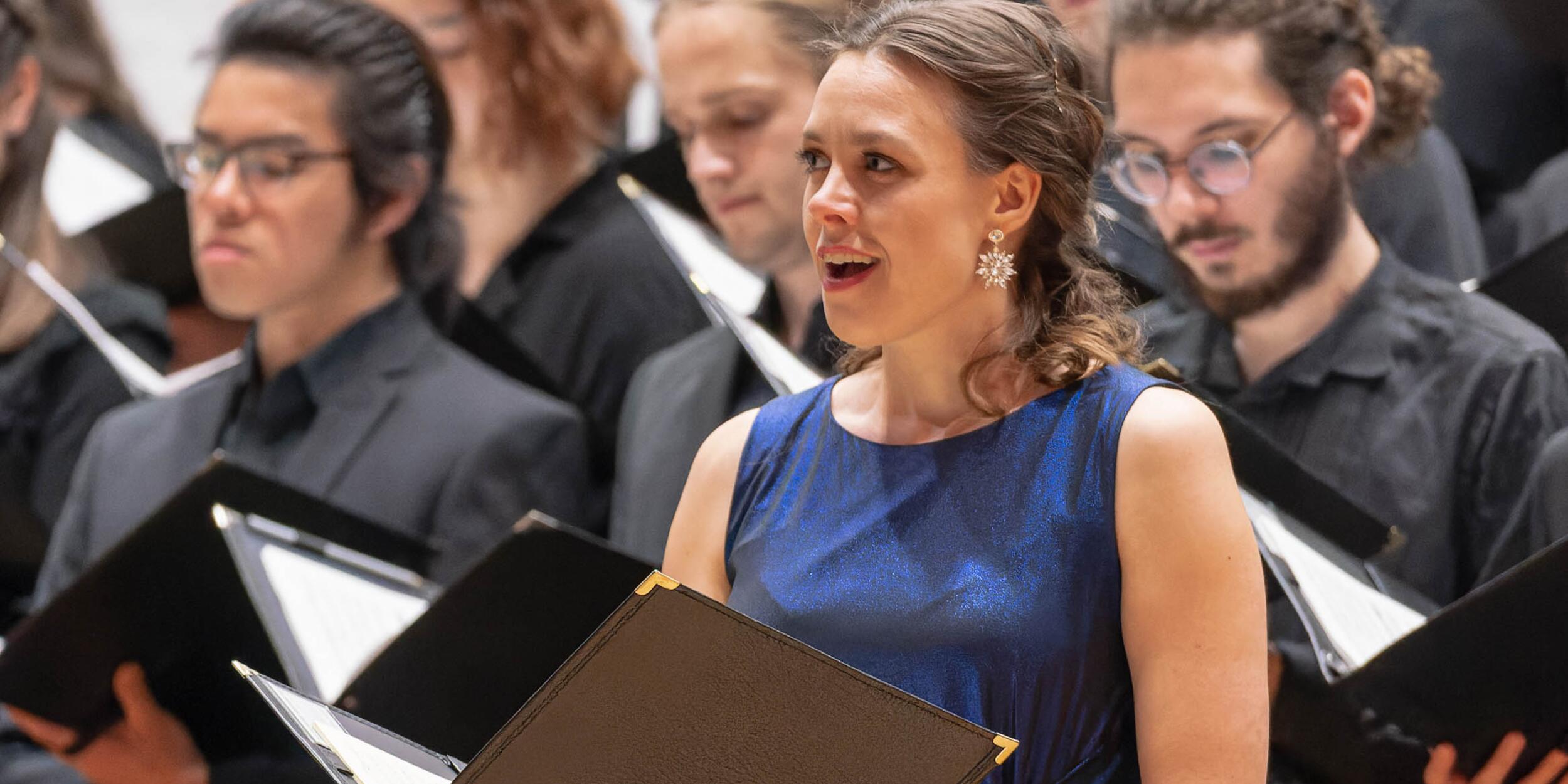
Overview
The bachelor's degree programme in voice is a comprehensive vocal and musical education which also provides basic instruction in acting and music-dramatic performance. Students can continue their studies after graduation in one of three master's programmess (voice, lied, opera & music theatre).
Department of Studies & Examinations
+43 676 88122 492
studienabteilung@moz.ac.at
Length
8 semesters / 240 ECTS credits
Language
German
Application period
1.2.–28.2.2025
Auditions
summer semester each year
dates see at "Audition dates"
overview of all dates
Downloads
General information
The goal of the bachelor's programme is to provide practice-oriented and academic professional preparation for a career as a singer in all available professional fields.
The curriculum is competence-oriented. After completing the programme, students should:
- master their instrument, the voice, and be able to present themselves professionally
- be free and independent in their artistic work
- be able to deal critically with artistic and academic issues
- be able to perform professionally as a soloist and in an ensemble
- have a comprehensive knowledge of style and repertoire
- have gained insight into the repertoire and performance practice of new and early music
- have acquired comprehensive knowledge of music theory and musicology and be able to apply this in practice
- have mastered the basics of academic work and be able to analyse, interpret and write about artistic content in a grounded manner
- have further developed their individual interests beyond their own subject area through targeted selection of elective subjects in the spirit of lifelong learning
The eight-semester bachelor's degree programme is modular in structure. Each module comprises teaching and learning content that has been combined to form thematically and didactically meaningful units of study. The names and content descriptions (study objectives) of the individual modules, the number of ECTS credits to be achieved for each module, and the type of performance assessment are specified in the curriculum. The module descriptions refer to the corresponding learning outcomes and competencies. The Bachelor's programme is a face-to-face programme and cannot be offered - not even in part - as a distance learning programme. The courses from the Principal Study, as well as in other One-to-One Tuition, are designed to build upon each other. Prerequisite for enrolment in courses from the Principal Study or One-to-One Tutition is a positive evaluation of the previous semester (from the second semester onwards).
The curriculum provides an overview of the courses to be completed, which are grouped into modules.
The courses are visible online in Curriculum Support:
A prerequisite for beginning a bachelor's degree (BA) is passing an audition. Auditions take place once a year and consist of various partial exams. All information about the audition can be found under “Information about the admissions procedure” further down the page.
A high school diploma is not necessary.
PLEASE NOTE: You can only apply for study programmes for which you have not yet obtained a degree!
Students of the Bachelor's programme are encouraged to complete a semester abroad. Semesters 5 and 6 of the degree programme are particularly suitable for this. In addition to subject-specific competences, a study period abroad can also lead to the acquisition and deepening of:
- Subject-specific foreign language skills
- General foreign-language skills (language comprehension, conversation, etc.)
- Organisational skills, through independent planning of everyday student life in international administrative and university structures
- Knowledge about international study systems, as well as broadening one's own subject perspective
- Intercultural competences
Examinations and assessments taken during studies abroad can be approved by the Director of Studies as equivalents to compulsory subjects, elective sujects or free elective subjects required by the Mozarteum University for your degree course. The documents required for the approval procedure are to be submitted by the applicant immediately after their exchange semester.
Details at International Affairs.
After completing the Bachelor's programme in Voice, the following Master's programmes are possible at the Mozarteum:
- MA Vocal Studies
- MA Lied
- MA Opera & Music Theatre
Please note that a regular admissions procedure (incl. audition) must be completed again for admission to the Master's programmes!
Information on the admissions process
A prerequisite for admission to the Bachelor's degree programme (BA) is passing an audition, for which applicants must register online via Muvac.
PLEASE NOTE: Applicants can only apply for degree programmes for which they have not yet obtained a degree!
Applicants are then invited to an on-site audition, which consists of several partial examinations.
2. Once in the MOZonline account: fill in the mandatory statistics UHstat1 (pre-registration for studies) and make a note of the application number that is sent by email upon submission of this information.
3. Create an application account in Muvac
4. Fill out your own profile in Muvac (minimum requirements: personal data, information on expertise matching the desired degree programme, in the CV: current employment and information on previous training)
6. Fill out the application form in Muvac ("Apply now"), being sure to enter your application number (see step 2) or Austrian matriculation number in the appropriate field
Please take a look at the FAQs about registration in Muvac if you have any problems.
- Online registration during the application period via the application portal Muvac (Please note: Registration is only possible if all required information and documents have been submitted!)
- Once the online application has been processed: invitation to on-site audition. The invitation will be sent via Muvac.
- The invitation to audition on-site must be accepted or rejected in Muvac; information on the audition programme in the principal study must be provided if required by the instrument/degree programme in question
- participation in the on-site audition
- Upon passing the audition and being offered a place: invitation to enrol in the degree programme
- Enrolment (in person) during the general admission period
first round:
- Compulsory for all
- Performance of a piece chosen by the candidate and possibly one chosen by the audition panel.
- Five pieces (opera and oratorio arias, art songs) from different stylistic periods and in different languages must be prepared, at least one of which must be in German and one in Italian, as well as a recitative.
- The programme must be performed from memory (except for oratorio arias).
- Following a positive outcome, participation in the examinations B, C and, if applicable, D.
second round:
- for all those who have positively completed the first round and participated in the partial examinations
- Performance of a piece chosen by the candidate and possibly other pieces chosen by the audition panel.
- A freely chosen text in German or in the candidate's first language must be prepared for recitation.
If necessary, an interview with the audition panel will take place, in which the candidate's motivation, background, previous studies, expectations or career prospects will be discussed.
Examination in basic knowledge of general music theory (written and oral), including an aural test.
Requirements in the written part of the examination (approx. 60 minutes):
• Notation of melodies from memory
• Continuation of given melodies
• Composing a short melody to a given text
• Noting down one-part and easy two-part melodic dictations as well as rhythmic dictations
• Forming all triads and seventh chords including inversions (especially dominant-seventh chords in root position and 3rd inversion)
• Recognising and notating simple figured basses as well as harmony functions and harmony steps in a musical context
Requirements in the oral part of the examination (5-10 minutes):
- Sight reading
- Recognising and naming intervals and simple chord progressions
- Singing triads (in inversions) and dominant seventh chords (in root position only)
- Identification of harmonic steps and dissonant neighbour notes
- Performing an extended cadence in major and minor in two different keys (on piano or guitar)
Sample exam questions and further help for preparation can be found HERE.
Audition lasting approx. 10 minutes. The programme must consist of two pieces in different styles. The following examples illustrate the level of difficulty expected:
- J.S. Bach: Notebook for Anna Magdalena
- J. Haydn: Sonatas in C major, G major or F major (HOB: XVI: 7, 8 and 9)
- R. Schumann: Album for the Youth, Op. 68
All applicants whose first language is not German must prove their German skills by the time of enrolment at the latest.
- Required language level: at least A2 (Common European Framework of Reference for Languages GER 2001)
- Information on the approved language certificates can be found HERE
Exam A - Audition to determine artistic aptitude: 30.6.-3.7.2025
Exam B - Music theory & aural skills: 2.7.2025
Exam C - Elementary piano exam: 2.7.2025
Exam D - German language skills: certificate (to be presented upon enrolment)
Please note that the Mozarteum University Salzburg offers various support options at the time of your audition and during your studies if you have a disability or a chronic illness.
If this applies to you and you would like to take advantage of counselling, please contact Claudia Haitzmann: claudia.haitzmann@moz.ac.at or +43 676 88122 337.
Any questions?
You can find more information about starting your studies here:
